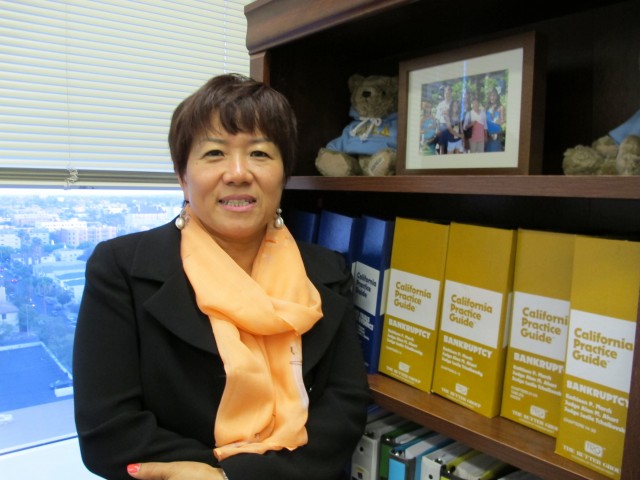
Editor's Note: Finding a nursing home for a loved one can be a daunting task. The job becomes more complicated when that family member doesn't speak English. As part of our ongoing health series, Vital Signs, we hear from Teri Lim who immigrated with her parents to Los Angeles from Korea. After her mother had a stroke two years ago, Lim started searching for a place to give her mom around-the-clock care.
By Teri Lim
I found this great rehabilitation home, and I took her there (but) she couldn't last a day because she couldn't speak English. When she pressed her button for help, someone would peek in, but my mom was not able to really fully articulate what was wrong with her, and they would just leave. Then she would press the button again.
After a while my mom was perceived as kind of a difficult patient because her needs were not met. She was so frustrated. I could just see in her face that she was very strained.